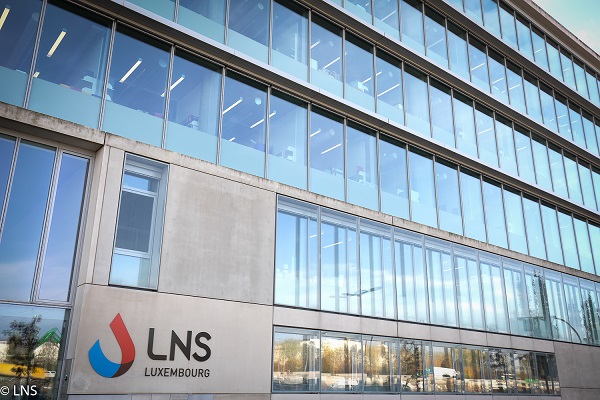 Credit: LNS
Credit: LNS
The European Centre for Disease Prevention and Control (ECDC) has awarded the department of microbiology of the National Health Laboratory (Laboratoire national de santé - LNS) a HERA incubator grant worth €4.8 million.
This grant will be used to expand and widen the spectrum of activities provided by the LNS' Luxembourg genomic and molecular microbiology unit (LUX-GEMM) in response to the COVID-19 pandemic.
The LNS microbiology department (LNS-Microbiology) in Luxembourg has hosted the national reference laboratory for acute respiratory infections since January 2021 and within a short time frame has implemented and optimised a sequencing protocol and analysis pipeline in the LUX-GEMM unit to respond the evolution of the COVID-19 pandemic. With the HERA incubator grant, this unit plans to expand its current sequencing capacity to 2,500 samples per week to allow faster investigation of SARS-CoV-2 variants, as well as the implementation of reverse transcription PCR (RT-PCR) assay for the identification of variants. This would enable the laboratory to screen all positive cases for new variants within 24 hours using the RT-PCR laboratory technique.
Moreover, the LNS will expand its biobanking capacity (LuxMicroBiobank), improve the automation of workflows and establish enhanced data reporting for integrated genomic and epidemiologic analysis to sustainably control the epidemiological situation in Luxembourg.
The HERA incubator grant offers a major boost to the national drive in capacity building, enhances the cross-border pandemic preparedness and response cooperation and establishes LNS-Microbiology as one of the main public health microbiology hubs in Europe.
Dr Tamir Abdelrahman, head of the LNS microbiology department, explained how essential European exchange and cooperation is for public health and pandemic preparedness, especially in times of crisis: "Being part of the HERA programme will help us and our European partners to transform evidence from the COVID-19 pandemic to a public health laboratory response model for any future potential health crises. We are expecting high-level coordination by the newly developed capacity under the HERA incubator grant to ensure a constant exchange of information and expertise between member states of the European Union and beyond".
Prof Dr Friedrich Mühlschlegel, LNS Director, also considered the nomination as recognition of excellence on the part of the European Commission: "In recent years, the LNS has undergone multiple efforts to become one of the major references in Luxembourg’s health system, aiming to offer its inhabitants the best possible services and care. The fact that we have been awarded the HERA incubator grant is a beautiful appreciation of our work and motivation with regards to our shared ambition as a team of experts to serve the country and the people".
Dr Jean-Claude Schmit, Luxembourg's Director of Health, commented: "HERA will enable the EU to anticipate threats and manage health emergencies through a unique health security structure. The last two years of a devastating pandemic have taught us that medical counter-measures are key to combating health threats and cooperation is the only way ahead. HERA is the representation that we need to think about health policy as a cooperation act to make us stronger and able to make a real difference for the health security of our citizens".
Paulette Lenert, Luxembourg's Minister of Health, added: "The LNS has played a key role and gained a lot of new knowledge and expertise from the very onset of the COVID-19 pandemic. We are therefore confident that the participation in the HERA programme will enable us to continue to make a long-term mark in this regard and are pleased to contribute to its success".








